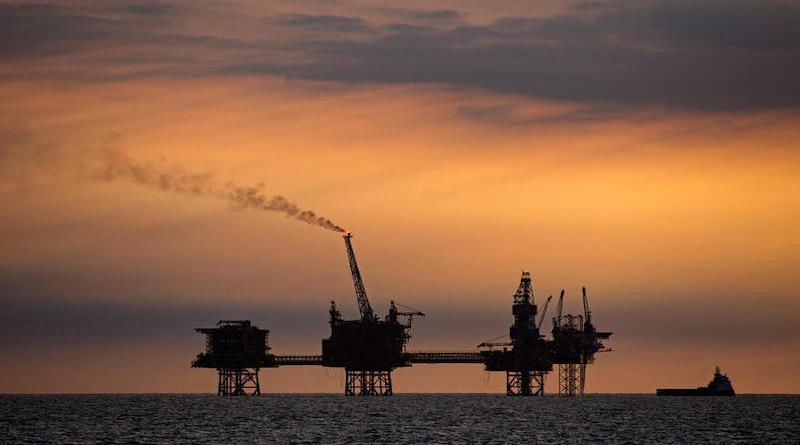Germany plans to keep funding new gas projects overseas despite pledge

Germany plans to support new gas projects overseas until 2025 in a potential breach of its commitment to end international fossil fuel financing.
The government’s export credit agency has released its draft policy for the provision of guarantees in the energy sector in what it described as an attempt to tie them to climate protection targets.
The guidelines were expected to belatedly align the German agency’s operations with a pledge made at Cop26 in Glasgow to end funding for coal, oil and gas projects overseas by the end of last year.
Under the proposal, the German government will no longer support coal and oil operations except when needed to decommission infrastructure or reduce methane emissions.
But the inclusion of a series of exceptions for fossil gas has come under heavy criticism.
‘Anti-science’ policy
Adam McGibbon from campaigning group Oil Change International said Germany’s claims to be a climate leader are “laughable” after the release of this new policy.
“This policy is anti-science, it runs against everything that the world’s scientists are telling us. No new fossil fuel infrastructure can be built if the world is to meet climate targets”, he added.
G20 divisions over key climate goals pile pressure on Cop28 hosts
The agency would continue supporting the development of new gas fields and related transport facilities until 2025 when justified by national security and in compliance with the Paris Agreement targets.
The pledge to end international finance for fossil fuel allows exceptions in “limited and clearly defined circumstances that are consistent with a 1.5C warming limit”. The International Energy Agency warned last year that investment in new coal, oil and gas production was incompatible with limiting global warming to 1.5C.
There is similarly a “large consensus” among climate scientists that developing any new gas fields is “incompatible” with limiting warming to 1.5C, according to a study by the International Institute for Sustainable Development (IISD) reviewing energy pathways.
Germany, which relied on Russia for a third of its gas, has opted for alternatives overseas, even equipping itself with new LNG importing capacity with new floating terminals.
In late 2022, the country even signed a 15-year deal to import gas from the UAE’s North Field, deemed a carbon bomb for its large untapped supplies.
2025 deadline
The German guidelines would also allow for the provision of export guarantees for the maintenance of existing gas extraction and transport projects until 2025 in industrialised nations and until 2029 in developing countries. This would only apply to activities that do not extend the lifetime or the production capacity of the projects.
The retrofitting of existing gas power plants with carbon capture and storage (CCS) technologies would also be eligible for public financing.
The German economy ministry said the sector guidelines implemented international commitments and that conditions for gas were very strict and very limited, Reuters reported.
Pressure grows on governments and banks to stop supporting Amazon oil and gas
The policy is expected to come into force towards the end of the year after undergoing a consultation process.
Export credit agencies, like the German agency, are influential in directing investment towards specific sectors. They do this by offering exporters government-backed loans, guarantees or insurance.
Thanks to those benefits, companies selling services and goods in countries or industries considered high-risk can offset them.
Cop26 pledge
Germany was among 39 countries and financial institutions that signed a pledge at Cop26 in November 2021 to stop public finance for overseas fossil fuel projects by the end of 2022.
Among the biggest signatories, the United Kingdom, France and Canada have published policies that meet the promise made in Glasgow.
Italy has already u-turned on its commitment, carving out a wide range of exemptions for the continued support of fossil fuel projects on energy security grounds.
The United States has not yet published its policy. Last May its export credit agency approved a loan worth nearly $100 million for the expansion of an oil refining facility in Indonesia.





